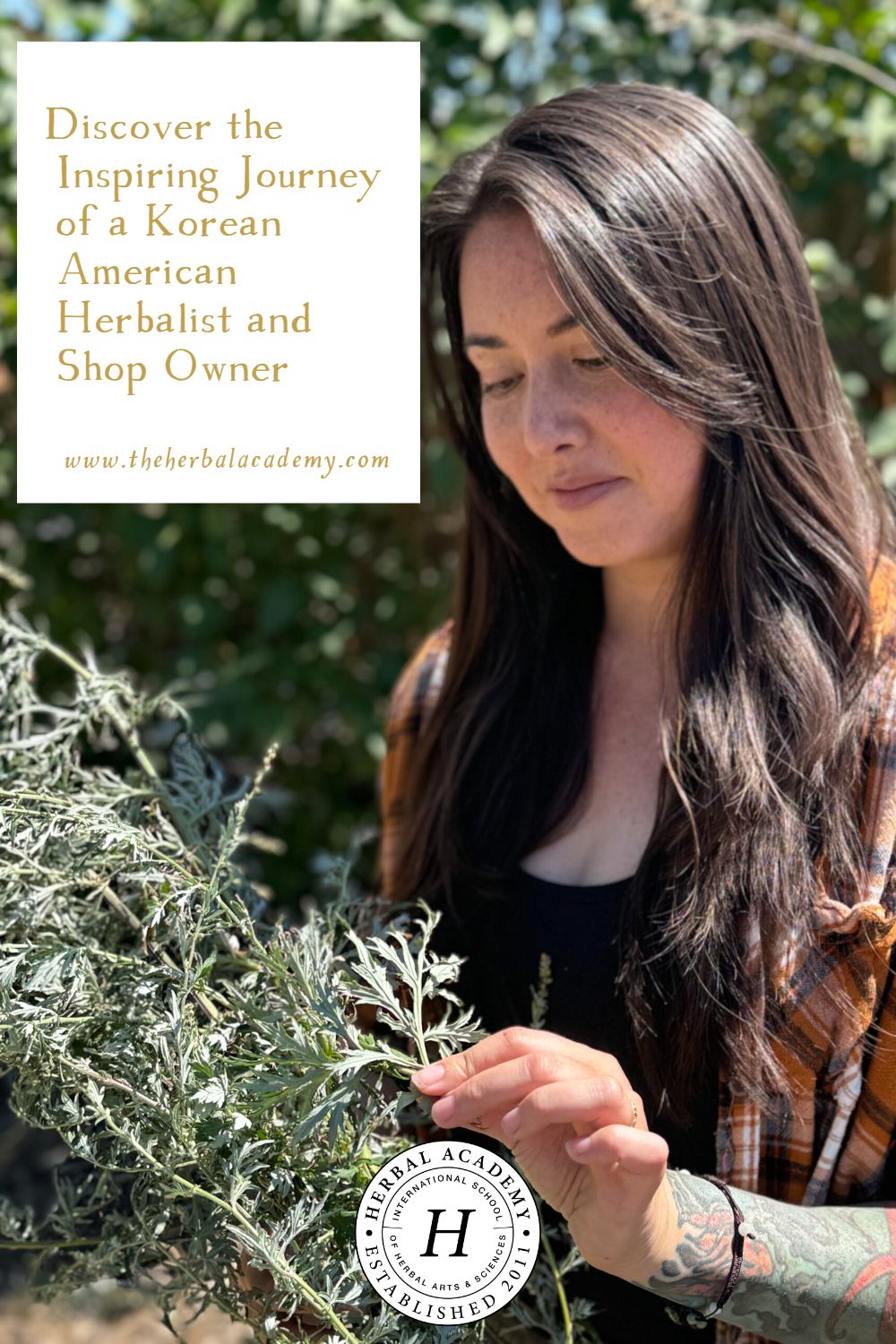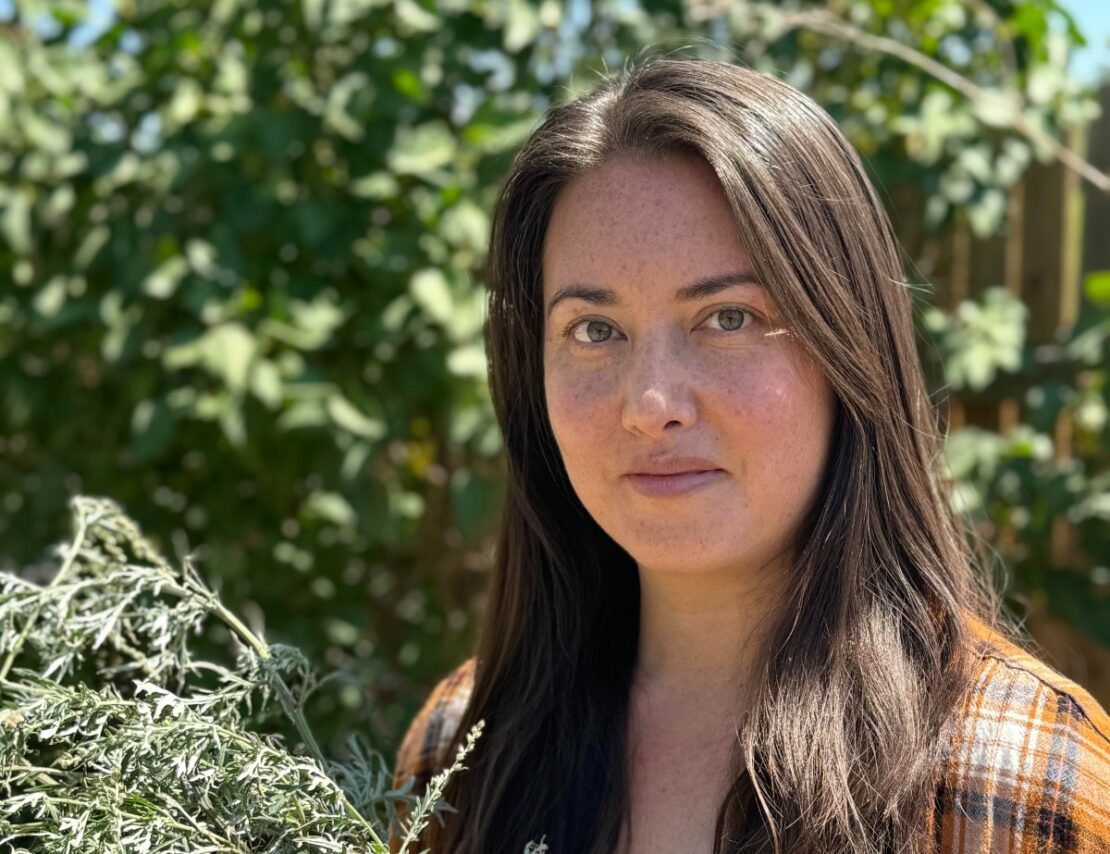
Discover the Inspiring Journey of a Korean American Herbalist and Shop Owner
Meet Christine Young, a Korean American herbalist bringing an herbal shop to Denver in 2024 offering bulk herbs, custom tea blends, formulas, events, and classes. She incorporates her cultural influence and offers a variety of herbal products, including kimchi. Christine is a graduate of Herbal Academy’s Intermediate Herbal Course, Business Herbal Course, and is currently enrolled in the Natural Perfumery Course. Her story:
My Korean American journey has certainly been long and full of seemingly sharp turns as I navigated different interests, figured out who I was, and sidestepped dead ends. All of my experiences continue to evolve my work in this life. My business, Hearth and Seoul, embodies the fusion of two passions dear to my heart: the cherished memories of cooking alongside my Korean mother and my 16-year journey into the world of herbalism and integrative healthcare.
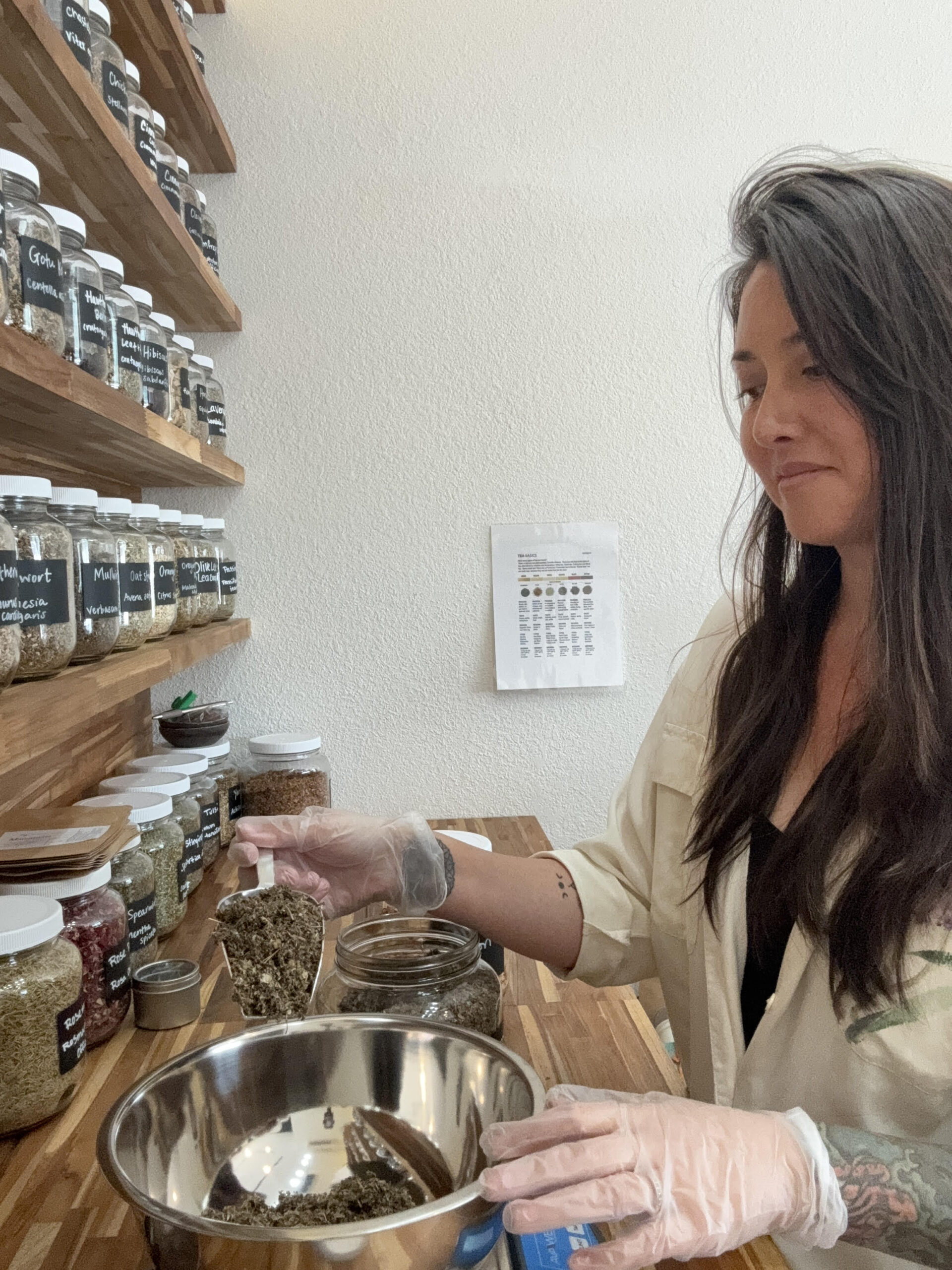
I think it’s a similar story with many people, but I had a lot of health concerns with hardly any answers so I immersed myself into studying holistic health. I went to school and received my A.A.S. as a holistic health practitioner, went on to Metropolitan State University of Denver, and received my B.S. in integrative healthcare. While I was in college I had been taking a lot of herbalism courses. I started with an internship with the United Plant Savers where I lived in a barn for 6 weeks and took classes with various teachers and helped tend to the land. I was dead set on continuing this path.
Over the years I attended the Colorado School of Clinical Herbalism, received my intermediate certification through the Herbal Academy, and took advanced courses with Matthew Wood. During this time I worked as a manager at a yoga studio and also worked with clients in the spa as a holistic health practitioner, but burned out after 6 years when I got pregnant. Then I started working for the School of Evolutionary Herbalism where I have worked for the last 6 years.
I have learned a lot from many different perspectives, but over time I started connecting more with my Korean heritage and wanting to offer something different that was near and dear to me.
There are a handful of online schools that I think are great and all have a unique teaching style: [Herbal Academy] is one of them. Herbal Academy has a lot of helpful resources with information that is really consumable. The Business Herbal Course helped me navigate a lot of steps to be able to open my shop and gave me a strong foundation.
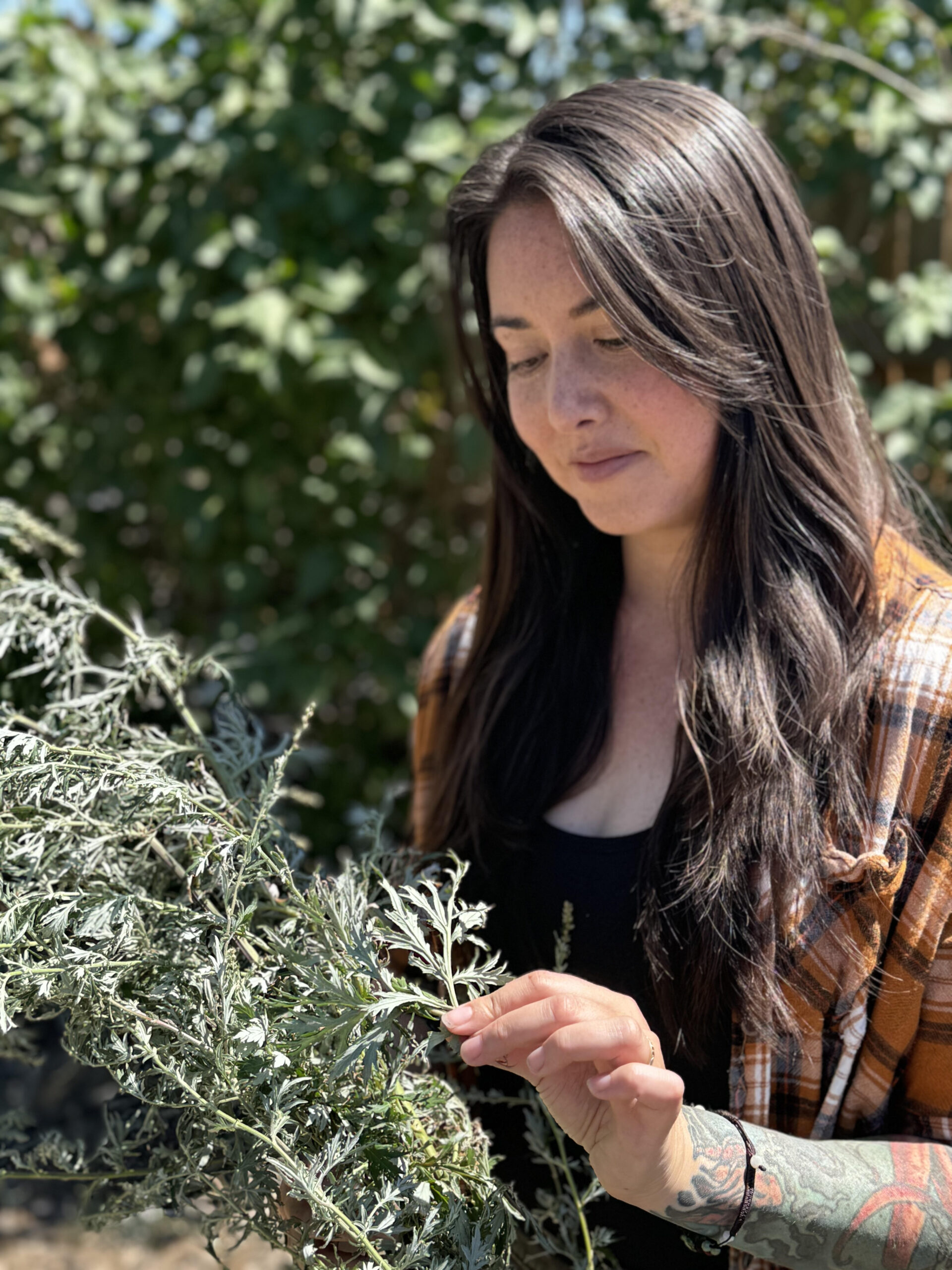
We asked if there were any particular experiences or set of experiences that guided her toward connecting more with her Korean American ancestral heritage, Christine shared:
There was a moment that started a cascade of events that led me back to parts of myself I hadn’t realized I was disconnected from. I’m biracial, half Korean, but I grew up in the US and often felt like I had to downplay my Korean side so that I didn’t stand out. In 2015 I had my first visit as an adult to South Korea to visit family. My mom had moved back to her home country of Korea a year or two before and I later realized that she had also taken her recipes, her language, and her customs with her. When those traditions were gone, it was noticeable. I didn’t have a community to keep carrying that on with. I had fragments of what we had grown up with, and felt like I was missing so much after she left. When I went to Korea I connected with family I hadn’t seen since I was a child. We cooked together, we ate, we laughed, we went to markets, and even through a language barrier I felt a part of myself fill up. Over the years I’ve been visiting South Korea more frequently and learning our family recipes, history, and customs, and just asking a ton of questions, especially to my grandma who gardens, forages for a lot of her dishes, and has so many stories. I bring those traditions back with me and cook for friends, celebrate the Korean holidays that hold meaning for me, learn about Korean plants and herbs, and practice speaking Korean with my son. I only practice and continue what makes sense for me; I know that not all the parts that they carry are for me.
The biggest takeaway for me is that it’s not a perfect path, but connecting to a part of yourself that’s deeply woven helps to inspire and awaken the quiet places that have been speaking to you. Sometimes we don’t have that family connection to our ancestry or practices and it’s important to learn when we have the chance. I think it’s equally important to learn and bring into practice what makes sense to you personally. We all personalize our practices each generation and it’s important to hold reverence for the ancestors and paths that led us here, and to do what makes sense in the now. If you have a chance to ask your elders about their stories, I highly recommend connecting in that way, but it’s perfectly okay to do some research and hold what feels true for you.
Networking, connections, and asking questions is so important. When you start talking about your ideas or your business it’s really quite amazing how you start meeting people who can support you in different areas, connect you to where you need to go next, or offer a perspective you didn’t realize you needed. Make sure you have your business plan. Building a business plan was a lot of hard work, but it helped me keep my focus on what my steps were to accomplish each goal, align my vision and mission, and pivot when I needed to. There are a ton of templates online, such as in the Business Herbal Course, so choose one that will help you stay focused. Contact similar businesses and ask them questions so you have an idea of where you might need to refine your plan.
As of June 2024, I’ve finally arrived at a place where I am able to offer my local community a space where I can share my passions and creativity. My shop offers bulk herbs, custom tea blends (for personal use and for events such as wedding favors), natural products, and hold workshops and events. You can also find me at farmer’s markets offering kimchi, Korean herbal teas, and various herbal products.
My goal is to partner with local sources, share within the community, and to have a space that offers comfort and shares aspects of myself with others while allowing others to bring forth parts of themselves, too.
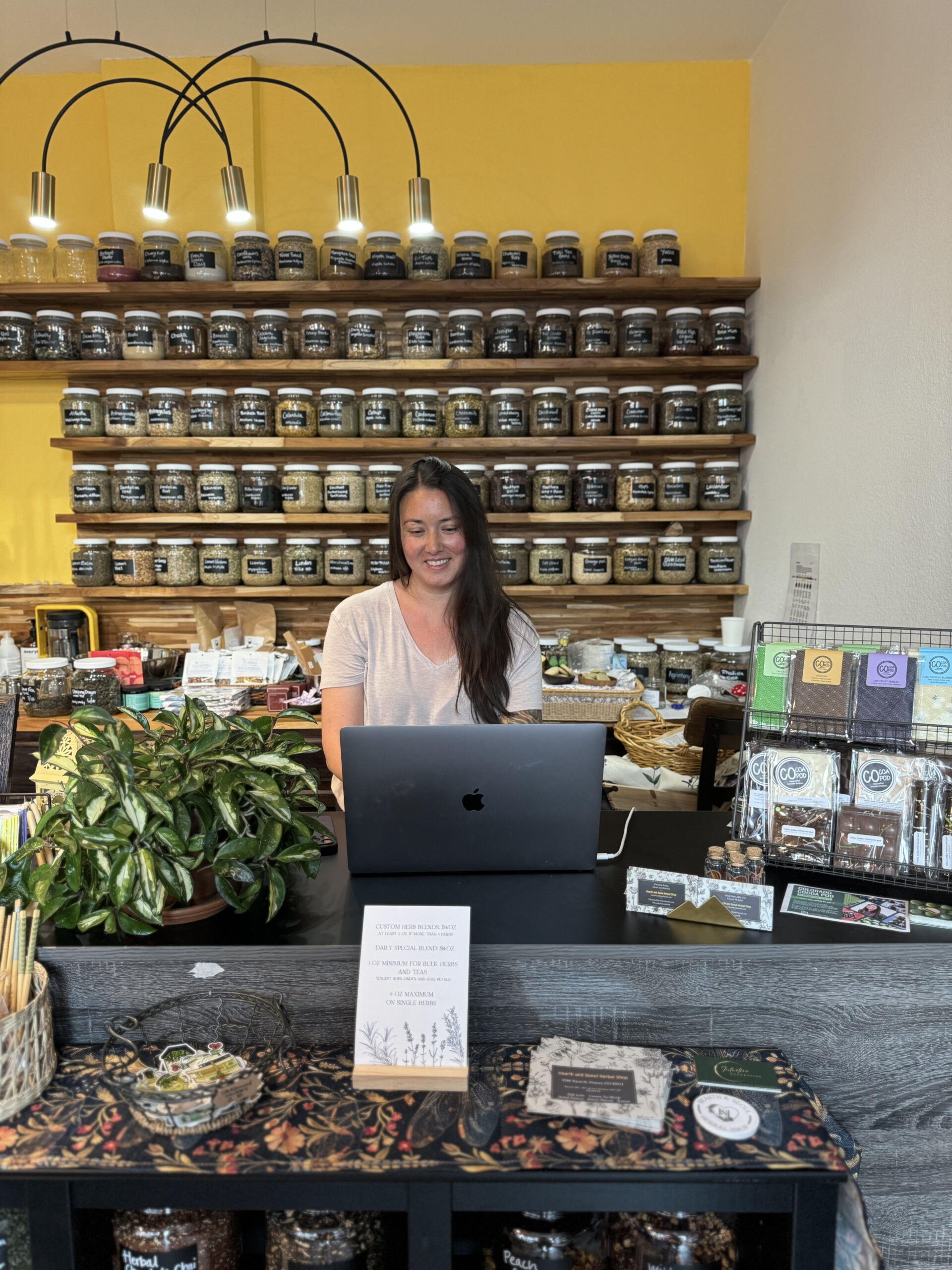
We asked Christine if she could share one of her most rewarding moments in her Korean American herbal entrepreneur journey:
Honestly, I think what I find most rewarding is when a previous client of mine finds me years later and tells me how much their life has changed, what was useful for them and that I made an impact. This last summer I ran into a client who stopped to tell me all of the changes that had come out and how I had helped them through the initial shifts. There’s a lot of trust in the work that herbalists do and I think it’s so important to be open, honest, and know what your limitations are.
I worked for an online herbal school for years and I often received messages from those who felt overwhelmed by the amount of information that was presented to them when they signed up for a course. My suggestion is to take your time. Become really familiar with a handful of herbs to start. I think when we get started we are in a rush to learn as much as we can, but we need to learn by experiencing nature, not only from theoretical ideas. Learn, and then experience. Look at the bigger picture and not always the fine details that can spin you off course. Be patient with yourself and with the plants. Let go of your expectations of the plant because we all have different experiences and no two journeys through herbalism are the same. It’s only through experiencing the journey that you slowly figure out where you’re going with it, but there’s no end to that journey, just an evolution of one’s learning and relationship to nature.
Herbalism has taught me how to slow down and appreciate what’s in front of me and to not be so extractive. Opening my herbal shop to offer accessible herbs to the community and have a place where we can share ideas and learn has been a dream of mine that I am currently realizing. You can’t work with plants if you don’t have a relationship with them, and developing that is more important than having a business.
When I started learning herbalism I felt like I had to know everything in order to help people and at times it was overwhelming. I didn’t know what path I was taking with it. There were times when I was burnt out on the overconsumption of knowledge, hopping teachers and schools, and the only times I really felt any respite was when I slowed down and appreciated what was in front of me first. There’s a theme here to all of my answers. Learning what was in my surroundings first made more sense. Working with herbs in relation to myself first made more sense. Creating lasting relationships with each plant made more sense. It’s not a race or a competition and everyone has their own insights to offer. I also found that clinical herbalism wasn’t my main path. I prefer community spaces, teaching experiential workshops, and learning. I also work with somatic practices, flower essences, writing, research, and herbal preparation making which satisfies the creative well inside me.
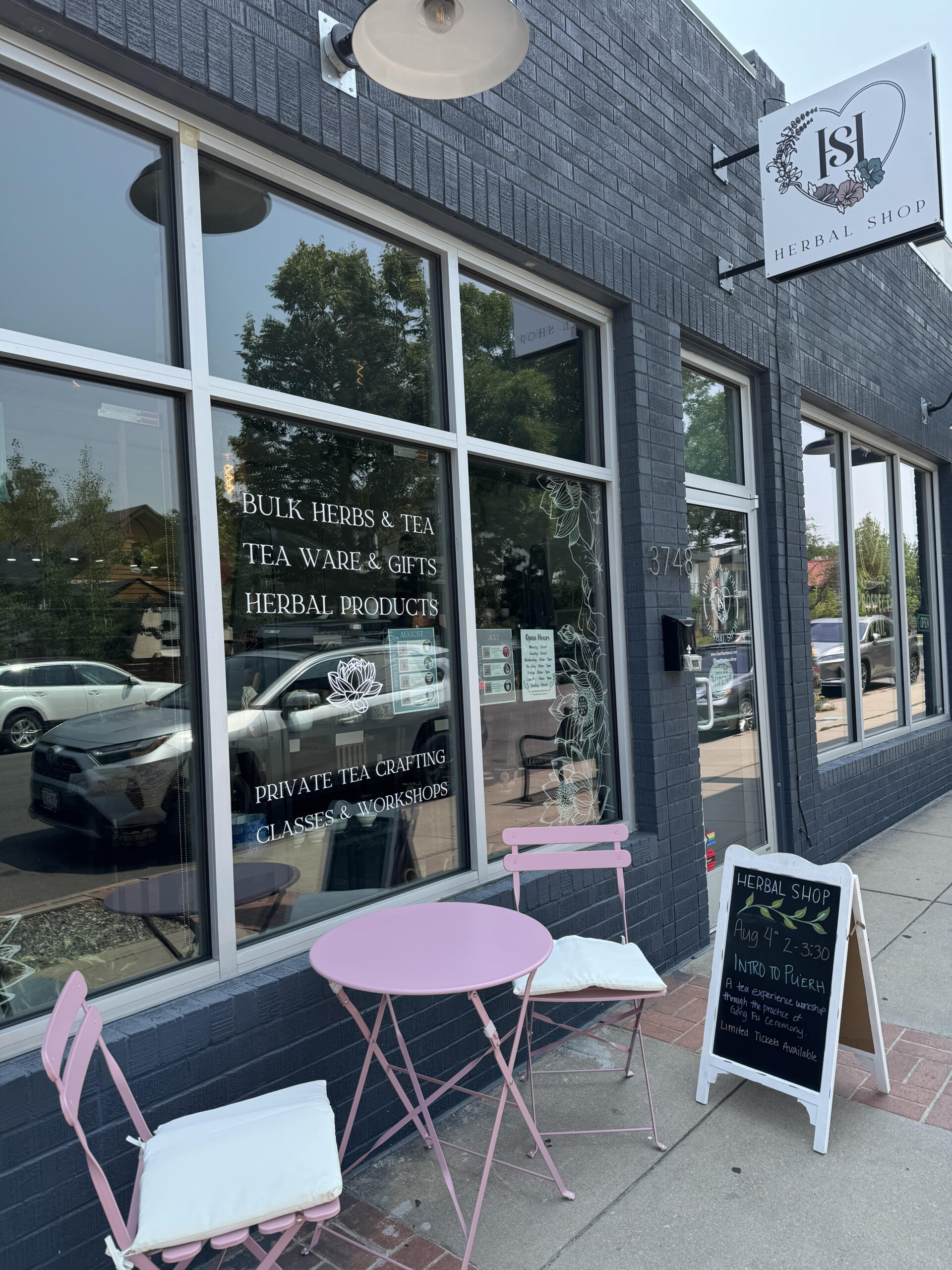
I’m living the journey at the moment, but it’s always an evolving path. I’ve opened up my shop in Denver and I am working with teachers who have a diverse cultural background to share what they have to offer with the community. I get to create different herbal products that change with the season. I have a product line that has Korean herbs incorporated with Western herbs. I visit Korea and work with local farms to source organic Korean herbs in my shop. I work with local farms and small businesses in Colorado and uplift other BIPOC and women-owned businesses. Sustainability, connection, and culture are huge pillars of my business and my process. I’m also writing a book that goes through the history of my Korean grandma, my mother and myself through a culinary lens, and features a rich section on Korean herbs as well. I’m learning a lot as I’m going through this process.
My mom and grandma have had a profound influence on my life of herbalism, wellness, nutrition, and gardening. They have also taught me to keep a rebellious spirit so that I always forge my path no matter what anyone else thinks. They were rule breakers and, though highly maternal, never fulfilled society’s role for them in a time when they had fewer choices than a lot of women have now. They are some of the most resilient women I know and have knowledge that they have been passing down to me so that I have an understanding of what is behind certain traditions. I always thought I entered this space on my own, seeking more from nature when I was lost, but when I started observing the women in my family and heard their stories, I remembered my upbringing. It was all there. When I was lost, I was just seeking a piece of something I had already been familiar with, until I took the reigns on the journey. We all have something to learn from each other. When I started the journey to my shop I was looking for other Korean American herbalists, but there really wasn’t a space for that. So I created what I wished to see.
